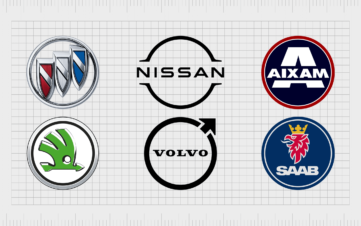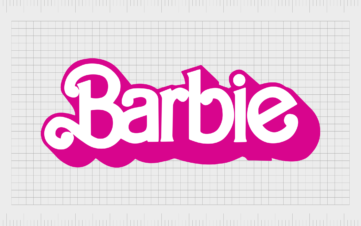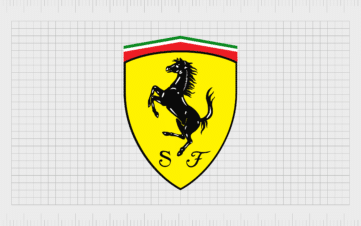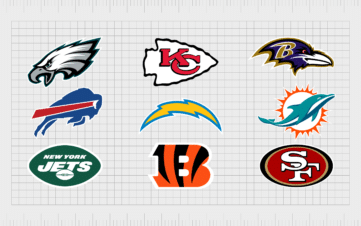Types of brand names: The various types of business names to consider

Knowing which types of brand names are going to connect best with your target audience and brand identity is easier said than done. There are countless ways to create a unique name, from picking your moniker based on the name of your founder, to experimenting with combinations of real words.
Different types of brand name have a specific impact on your customers. While evocative brand names get your customers thinking, more descriptive names can help you appear more transparent and trustworthy.
In some cases, a good brand name could be an entirely made-up word, chosen specifically to be an empty vessel for the organization’s personality.
When you’re searching for a great name, it’s important to consider all of your options carefully, and think about the kind of identity you want to create.
Here’s your guide to the different types of brand names.

Descriptive brand names
Descriptive names are some of the most common in the branding world. They’re often a little easier to come up with than non-descriptive, evocative, or made-up terms, because they simply describe what your company is, or what it does.
A descriptive brand name might seem simplistic, but it can be an excellent way to demonstrate transparency as a brand. Rather than making your potential customer guess at whether your brand might be right for their needs, you can immediately highlight whatever it is you can offer.
Descriptive brand names are functional and utilitarian, but they don’t leave a lot of room for creativity, meaning you may need to look for other ways to let your personality shine through, such as with a tagline, or a great logo.
Examples of descriptive brand names:
- General Motors
- The Weather Channel
- Bank of America
- Hotels.com
- Holiday Inn
Find out more about descriptive brand names here.

Abstract brand names (non-descriptive)
On the other side of the coin to descriptive brand names, we have “abstract” company names. An abstract name replaces a generic term with a word with no immediate connection to the company.
Although there may be a hidden meaning within the name, the customer won’t be immediately aware of what the company is or what it does at first glance.
Abstract names are more interesting for a new company hoping to capture the attention of their audience and connect with them on an emotional level. If you’re considering different types of brand names, and you don’t want to be obvious with your moniker, you may choose an abstract name.
However, because an abstract name doesn’t provide any immediate information about the company, it can be confusing to some customers. Companies will need to work hard to make it clear why they chose their abstract name, and what they stand for.
Examples of abstract brand names:
- Hulu
- Xerox
- Vivo
- Apple
- Kodak
Find out more about abstract brand names here.
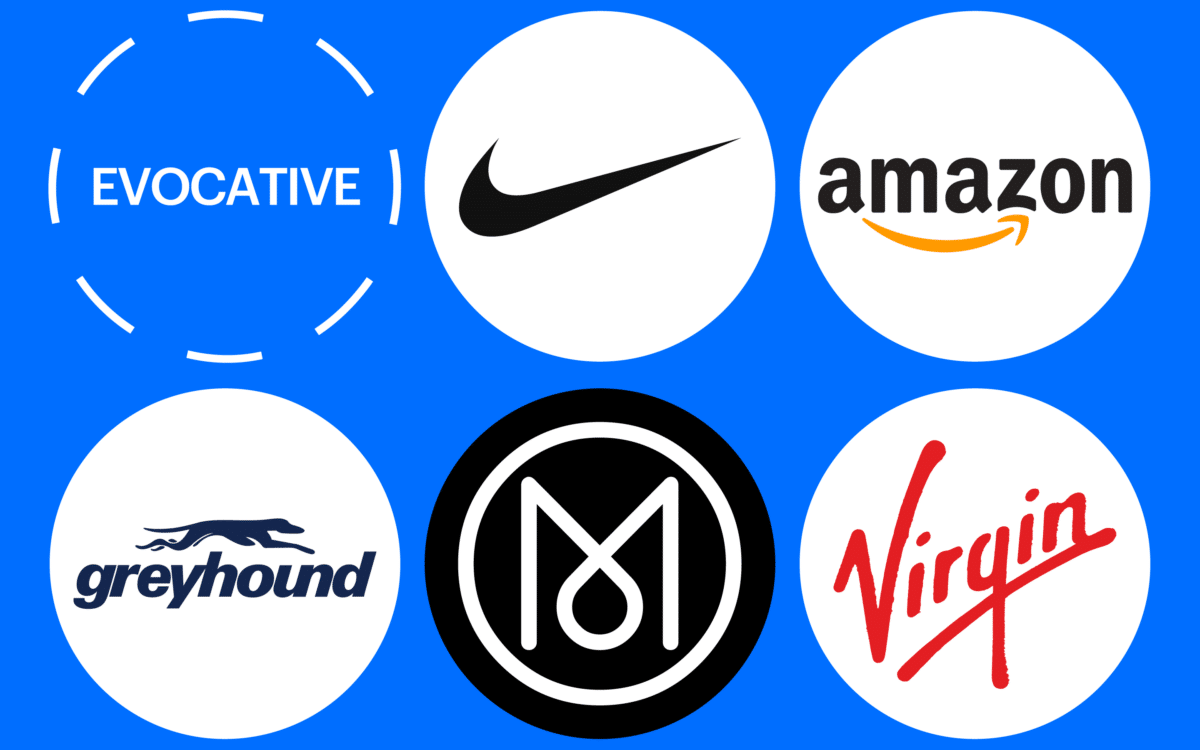
Evocative brand names
Evocative brand names are somewhere in between non-descriptive, and descriptive terms. When it comes to the different types of brand names available today, most companies choose evocative titles when they want to convey a certain idea or feeling, without being too obvious.
Evocative brand names do exactly what you’d expect, they evoke a certain idea or feeling within the people who interact with them. For instance, the name “Nike” stands for the Greek Goddess, Nike, associated with speed and victory.
“Apple” chose its name to draw the mind to the ideas of nourishment and growth, as well as discovery, thanks to the close connection with Isaac Newton.
The biggest issue with evocative names, is there’s no guarantee you’ll evoke the right response in all of your customers. You’ll need to invest in some excellent branding to ensure your customer gets the message of whatever you stand for.
Examples of evocative brand names:
- Nike
- Amazon
- Greyhound
- Monocle
- Virgin
Find out more about evocative brand names here.
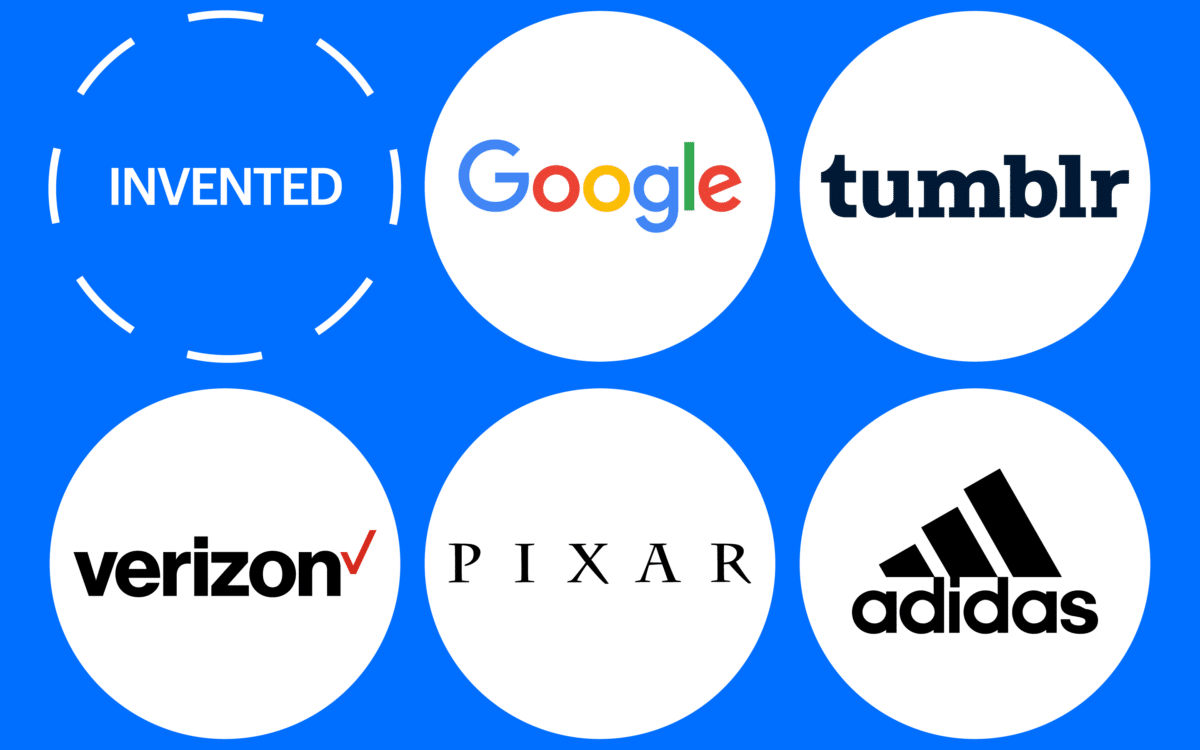
Invented brand names
Using a word already present in the dictionary to define your company is great, but you won’t always be able to find the exact term you need to make the right impression. When this happens, the best way to name your business may be to come up with a brand-new word instead.
Invented brand names are the easiest names to trademark because there’s a good chance no-one else has tried to own them before. They’re also one of the most popular types of brand names for people who want to show their creative side.
The great thing about invented brand names, is you can use them to convey any kind of information about your business you like. However, they can also be complicated to spell and remember for customers, as well as difficult to understand in some cases.
Examples of invented brand names:
- Tumblr
- Verizon
- Pixar
- Adidas
Find out more about invented brand names here.
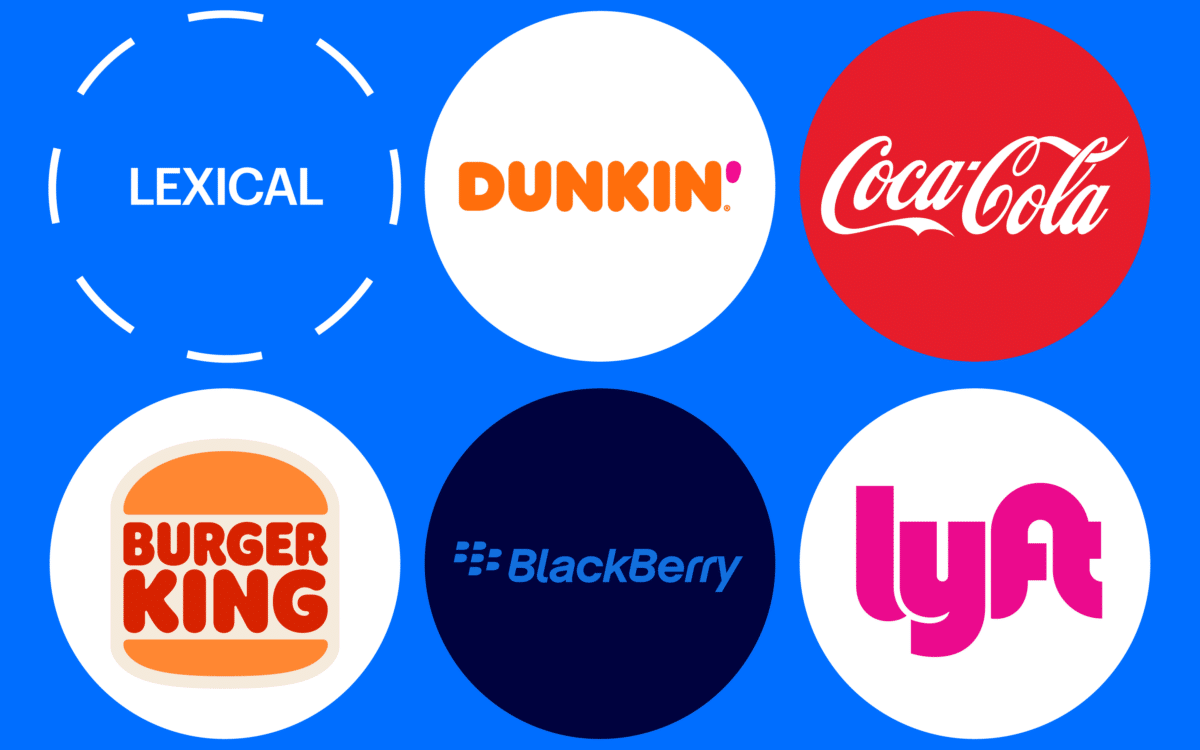
Lexical brand names
If you’re struggling to find a way for customers to remember your brand name, one of the best things you can do is play with language. We’re naturally more predisposed to remember names taking advantage of concepts like alliteration, onomatopoeia, or rhyming.
Lexical names are clever tools for capturing the attention of your customers with a fun, easy-to-remember, and almost lyrical term. You can also create a fantastic personality for your brand with lexical brand names, as they often come across as playful and youthful.
However, at the same time, lexical brand names can also be problematic for companies attempting to achieve a more sophisticated and corporate brand identity.
Examples of lexical brand names:
- Dunkin’ Donuts
- Coca-Cola
- Burger King
- Blackberry
- Lyft
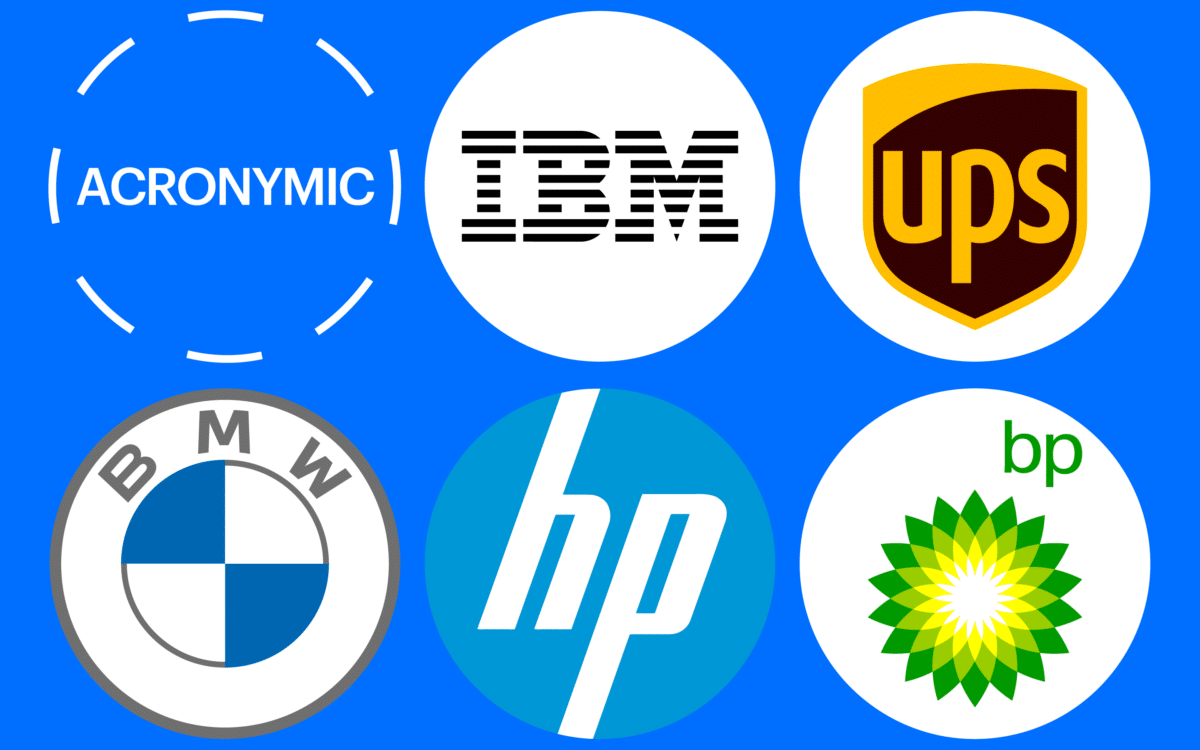
Acronymic brand names
When it comes to naming your business, most experts will recommend using “short and sweet” terms, because they’re much easier to spell and remember. Many companies, however, start off with complex names, then cut them down into something more memorable.
Acronymic names are very common in certain industries, such as science and technology, because they can help to reduce the complexity of longer names. Terms like “IBM” and “NASA” are naturally easier to remember.
However, they don’t have the creative impact of other types of brand names.
Names created from acronyms generally aren’t as effective as they could be, because they have very little meaning connected to them. Most people wouldn’t be able to tell you what the acronym names they’re familiar with stand for.
Interestingly, however, acronymic names can also be a useful way to disconnect a brand from unwanted backlash. For example, “KFC”, allowed Kentucky Fried Chicken to distance itself from the negative connotations of fried foods.
Examples of acronymic names:
- IBM
- UPS
- BMW
- HP
- BP
Find out more about acronymic brand names here.
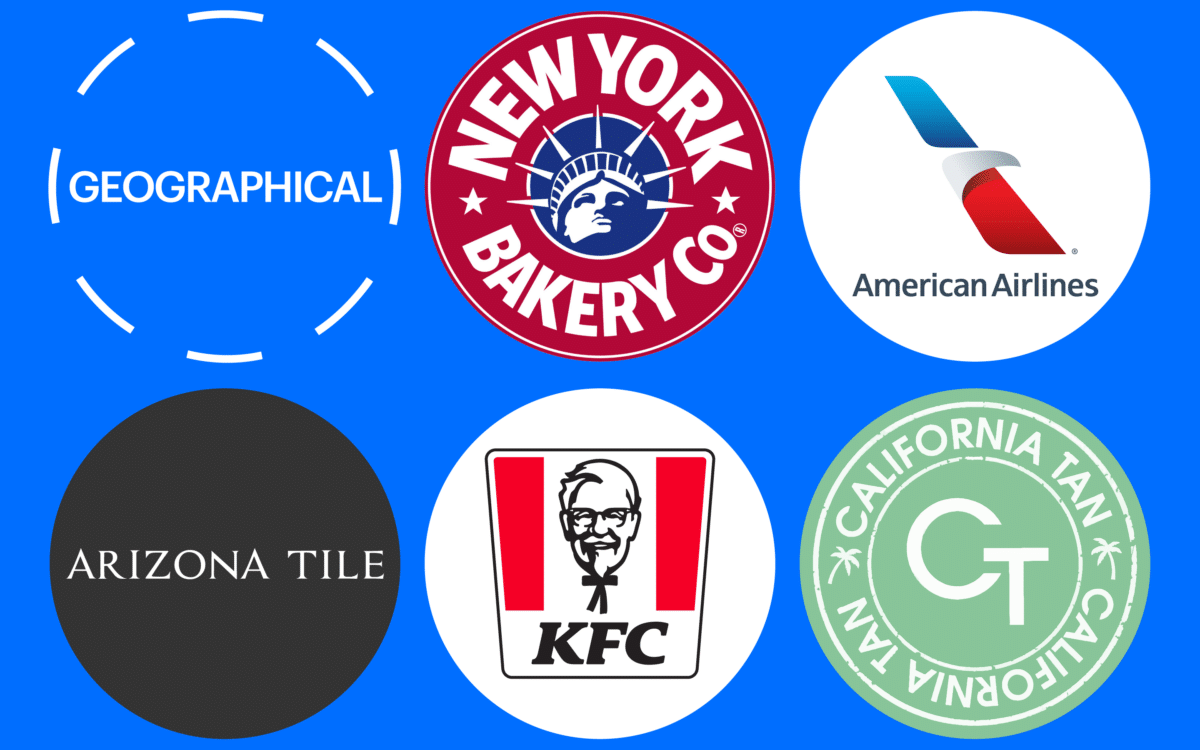
Geographical brand names
As you might expect, geographical names are another of the most common types of company names, because they’re relatively simple to come up with. A geographical name links the company and its identity to a specific location, like “Nantucket Nectars”.
Geographical names can be complex. In some cases, this kind of term can make it difficult for your brand to branch out. When you link your company to a specific space, it’s easy for customers to assume your products or services are only available in this one location.
However, these terms can also be an excellent way to appeal to a local audience, and highlight the history or foundations of your brand. Geographical names are particularly useful if the location has a specific connection to certain meanings or ideas.
Paris, for example, is usually associated with fashion, and New York is considered modern and cutting edge.
Examples of geographical names:
- New York Bagels
- American Airlines
- Arizona Tile
- Kentucky Fried Chicken
- California Tan
Find out more about geographical brand names here.
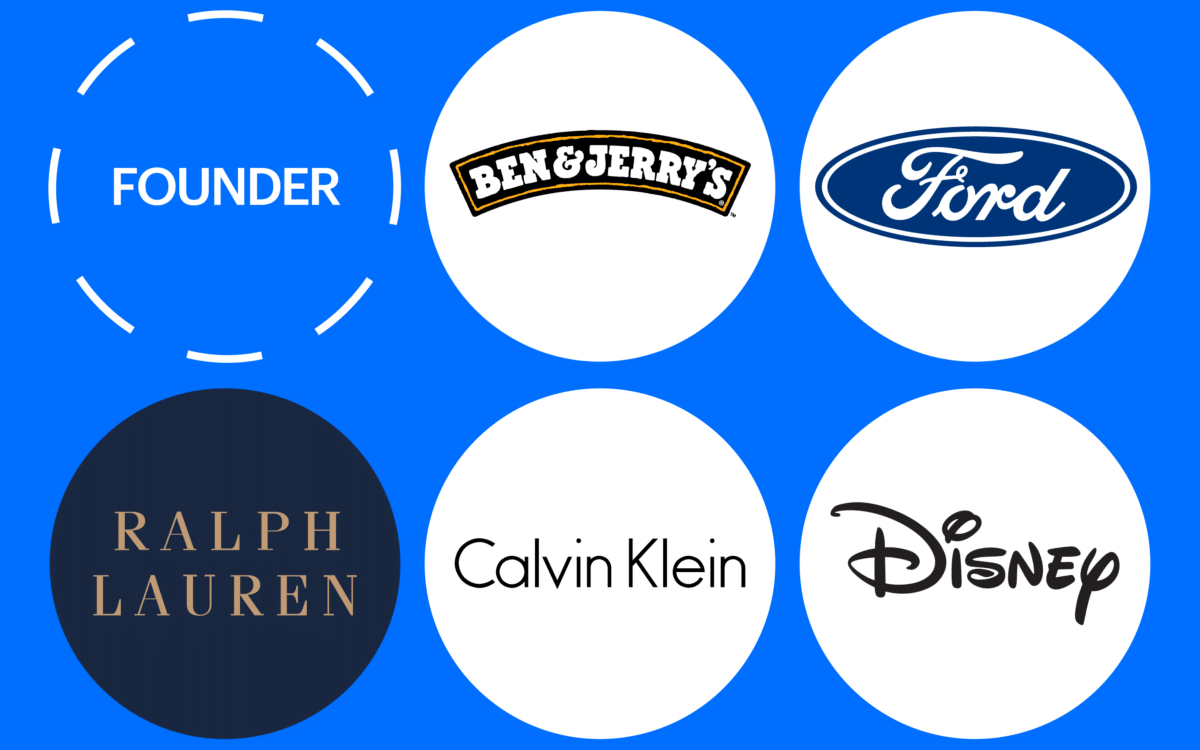
Founder brand names
Often chosen to give a sense of heritage and humanity to a brand identity, founder brand names pull attention to the person behind the company, rather than focusing exclusively on the corporate entity.
Founder brand names are excellent when you want to build the identity of your company around a person with an existing personal brand.
There are countless examples of brands naming themselves after founders, from the Walt Disney company to the Martha Steward brand. On the one hand, these names can be a little abstract, as they don’t immediately tell you anything about the company, and they rarely evoke emotions.
Founder brand names can also be difficult to trademark in some cases, as it’s common to find other people around the world who have the same name as you.
On the other hand, a founder name can make it feel as though consumers are connecting with another human being, which leads to deeper, more emotional brand relationships.
Founder names are more common in particular industries, like accountancy and law firms.
Examples of founder brand names:
- Ben & Jerry’s
- Ford
- Ralph Lauren
- Calvin Klein
- Walt Disney
Find out more about founder business names here.
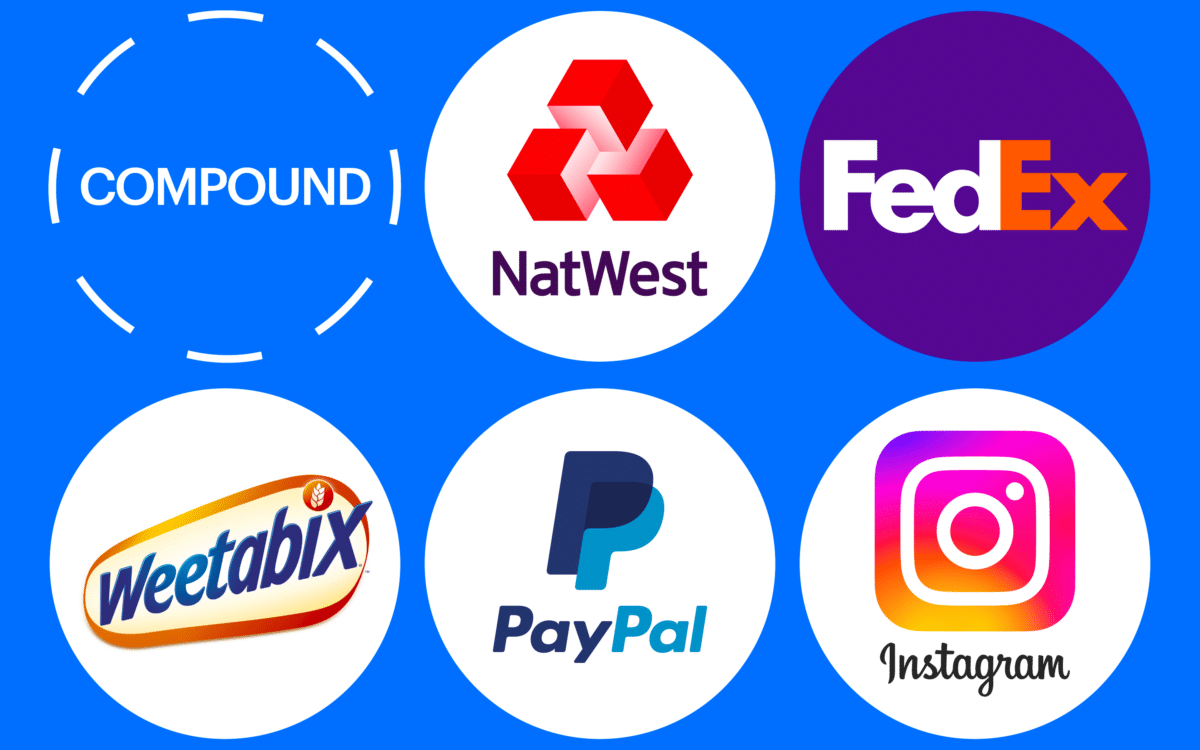
Compound brand names
Compound brand names allow for a little more creativity than some of the titles mentioned here, but they also don’t require business owners to come up with an entirely new term from scratch. These types of business names are designed by bringing two different terms together to form a new word.
Compound or conjoined brand names are excellent when you want to send a specific message about your company, with two descriptive or meaningful terms. A compound name can help your company to be more descriptive with its title, without being overly obvious.
With a compound name, you can cut an otherwise complicated name down into a smaller, more memorable title. It’s also possible to create a more playful and friendly personality with this kind of name, like “PayPal”.
Examples of compound names:
- NatWest
- Fedex
- Weetabix
- PayPal
Find out more about compound brand names here.
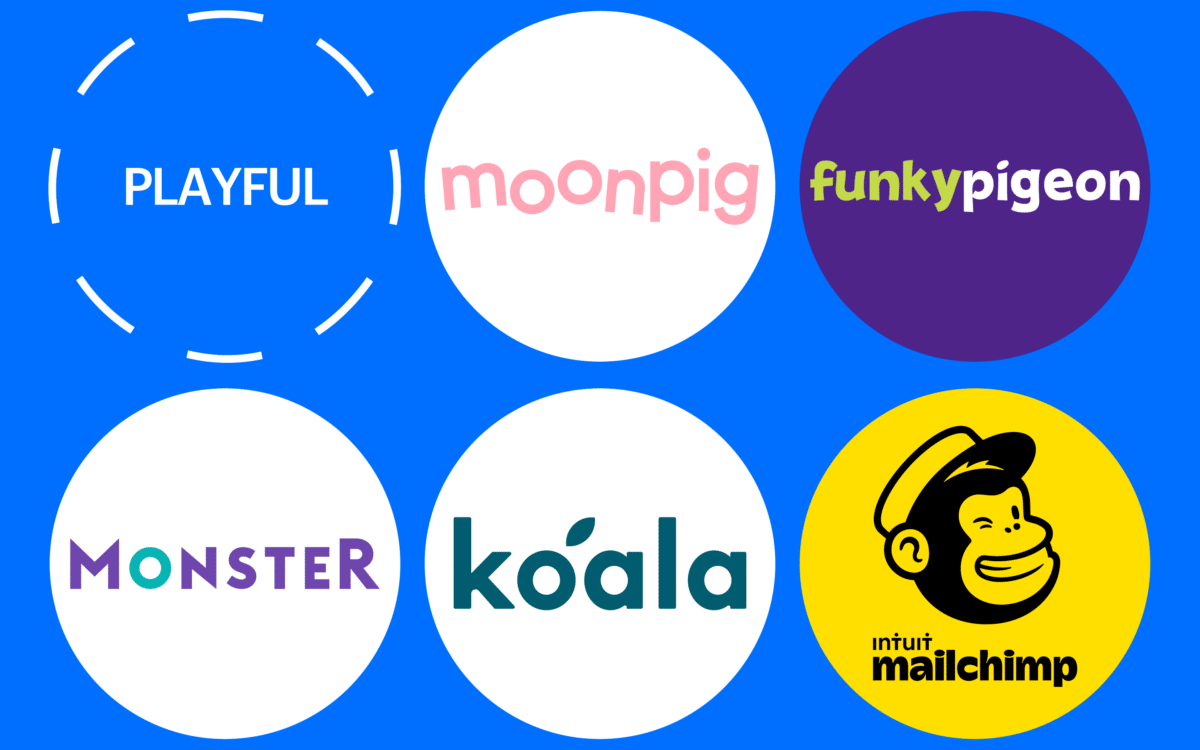
Playful brand names
A playful brand name is a title specifically chosen to convey something important about the identity or essence of the company. The name is often chosen to make the company seem more youthful and playful, while still giving it a distinct sense of meaning.
In a lot of ways, playful company names are similar to evocative names, as they intend to elicit a certain emotional response from an audience.
For instance, “The Dancing Bee” or “The Hearty House” are both names which immediately make you picture something fun and light-hearted.
Playful brand names are complex. They won’t work for every company, as they can sometimes come across as a little silly. However, if you want to set yourself apart from your competitors with a more interesting name, this could be the route for you.
Examples of playful brand names:
- MoonPig
- Funky Pigeon
- Monster
- Sour Koala
- Mailchimp
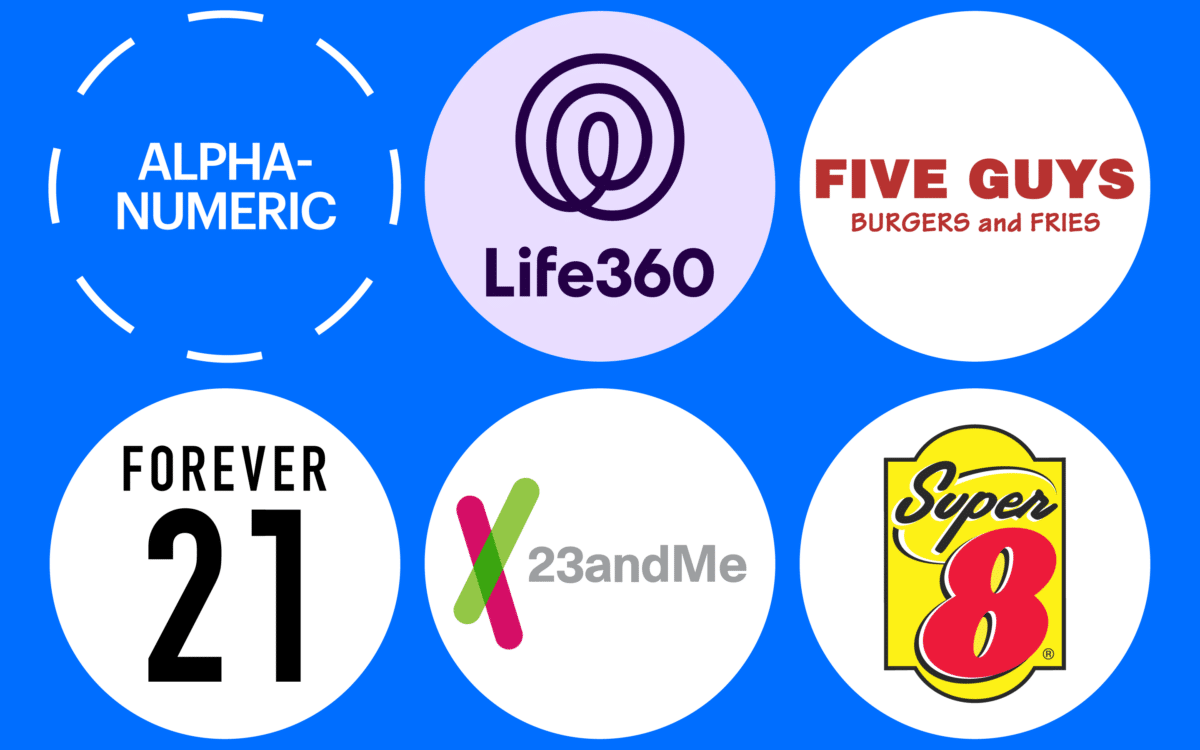
Alphanumeric brand names
Adding numbers to names is a tricky concept. Usually, it’s best to avoid this idea in the digital world because it’s difficult for a customer to know after hearing your name exactly how they can find your website or brand presence.
You wouldn’t know straight away, for example, whether to search for “Three” or “3” when researching the mobile phone brand.
Of course, there are cases where a number in a name can have a meaningful impact on your audience, and help your business to stand out from the crowd. An alphanumeric name can have just as much meaning as any other moniker, as we often associate certain numbers with specific things.
For instance, we associate “180” with turning things around, and “360” with getting a comprehensive view of something. Numbers can also create a certain image in someone’s mind, like “Five Guys”, making you think of a group of people working together to make a meal.
Examples of alphanumeric brand names:
- Life360
- Five Guys
- Forever 21
- 23andMe
- Super 8
Find out more about alphanumeric brand names here.
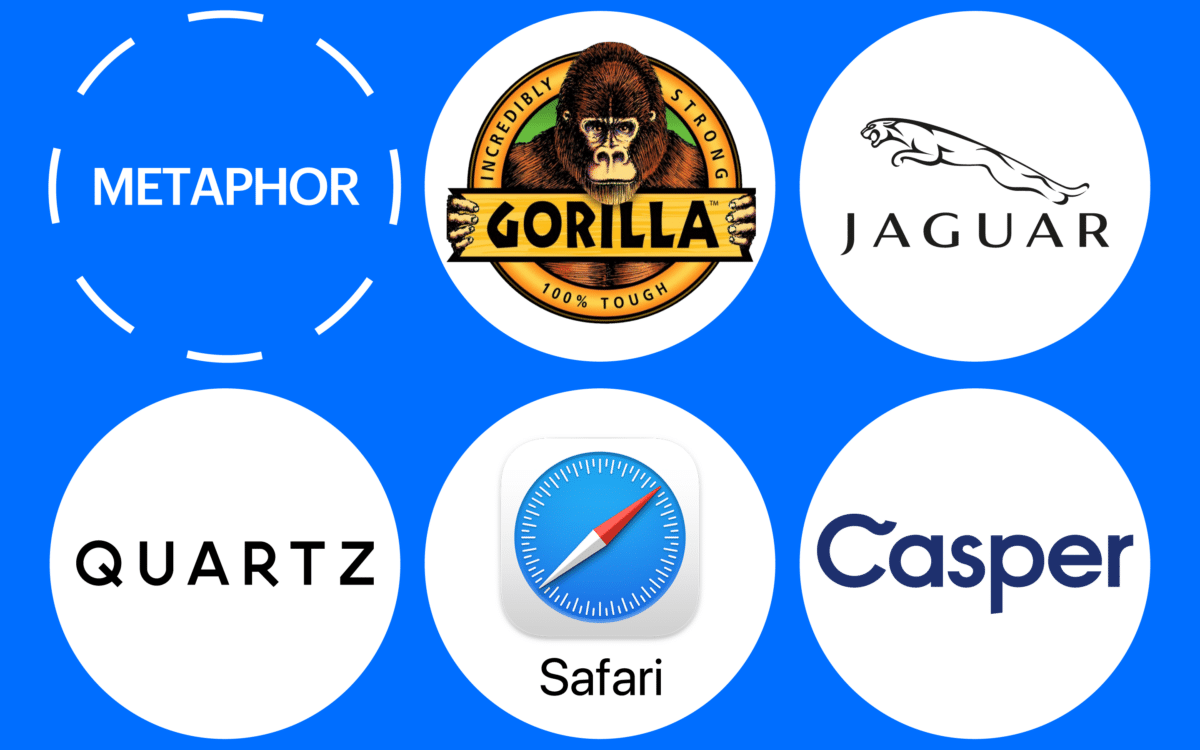
Metaphor brand names
Some people will include metaphor brand names in the same category as evocative company names, or even lexical titles.
With a metaphor name, you reach your customer base by using a well-known metaphor to evoke a specific idea, or paint a picture in your audience’s mind. Metaphors are great for saying something important about your company, without being too obvious.
As one of the most common examples of evocative names, metaphor brand names are excellent for telling a story. They often provide an insight into the characteristics or qualities of your company, or help to highlight your values to new customers or people who haven’t interacted with you before.
Even if people aren’t entirely sure of what the metaphor means, the use of this kind of evocative language can be enough to generate curiosity and intrigue. However, there’s always a risk your metaphor of choice won’t translate into every customer base.
Examples of metaphor brand names:
- Gorilla Glue
- Jaguar
- Quartz
- Safari
- Casper
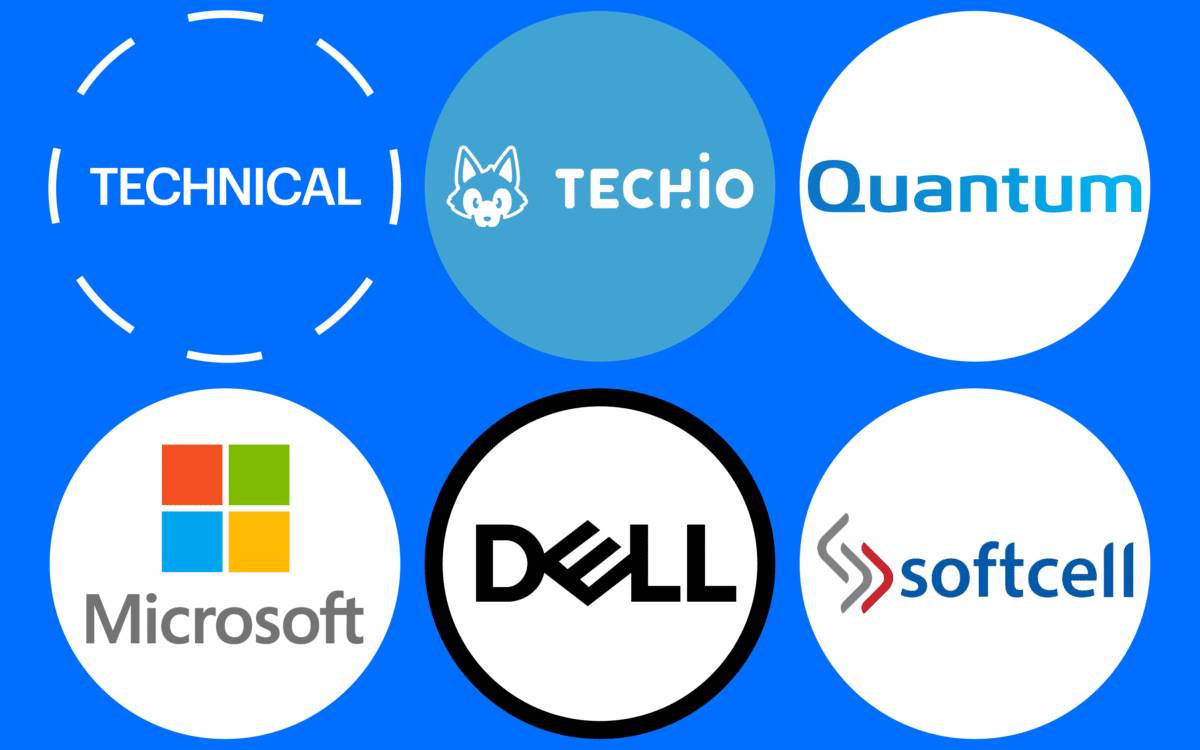
Technical brand names
Like many types of company names, technical brand names are usually more common in certain industries and environments. A technical name aims to have a modern impact on an audience, while telling us something about the specific tools that go into creating a service.
“Microsoft” makes us think of microchips and software, for example.
Technical brand names are most common in the tech industry, but they can also show up throughout telecommunications, in the services landscape, and in countless other environments too.
Most of them are a combination of compound or evocative terms, intended to make people think of something technologically advanced.
While technical brand names can be an excellent way to instantly identify what kind of company you’re running, they can also make your company come across as overly complex. There’s also a risk your audience won’t always know what the terms you’re using mean.
Examples of technical brand names:
- TechIQ
- Quantum Corp
- Microsoft
- Dell Technologies
- SoftCell
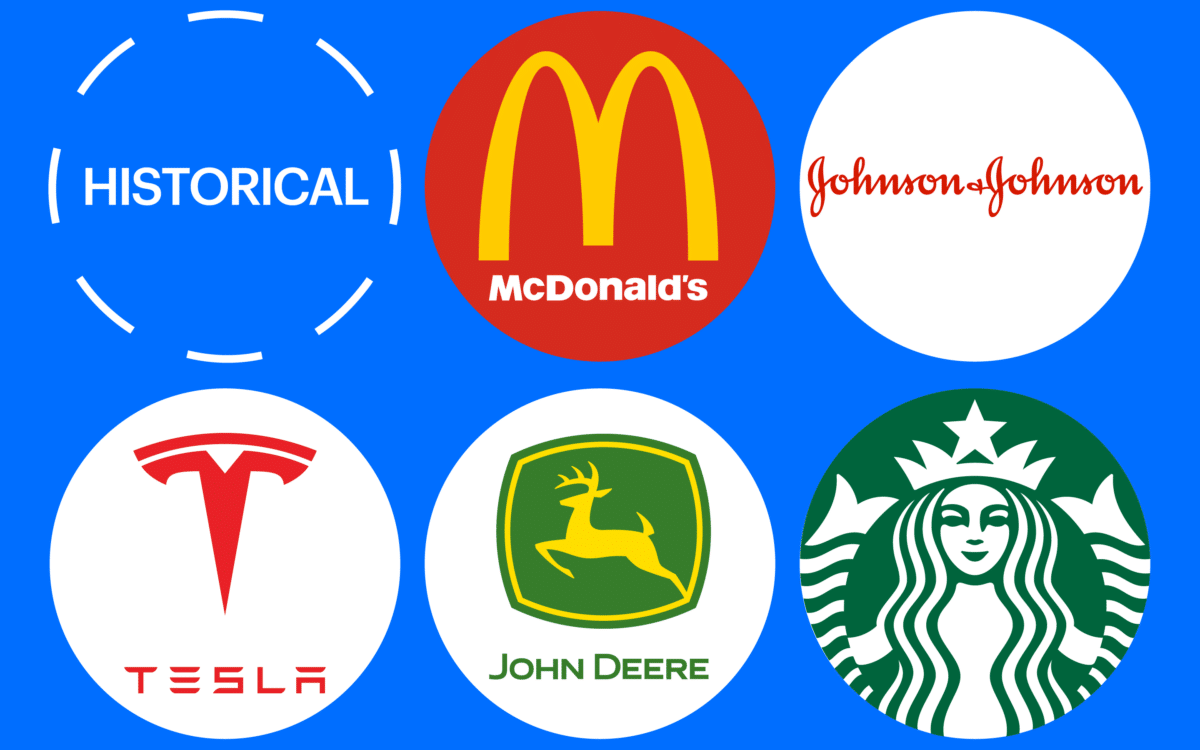
Historical brand names
Otherwise known as “origin” brand names in some circles, historical brand names come from the heritage or foundations of the organization in question. In some cases, they might be linked to a significant historical figure, which helps to share some useful information about the brand.
For instance, Tesla is named after Nikolas Tesla, drawing the mind to his experiments with electricity.
Historical brand names are useful in many industries for giving a company a sense of heritage and depth. Used correctly, they can make a company seem as though it’s been around for a significant amount of time, which gives the brand a sense of stability.
The biggest risk with historical brand names is they may make your company seem a little more “old fashioned” if you want to appeal to a younger audience.
Examples of historical brand names:
- McDonalds
- Johnson & Johnson
- Tesla
- John Deere
- Starbucks
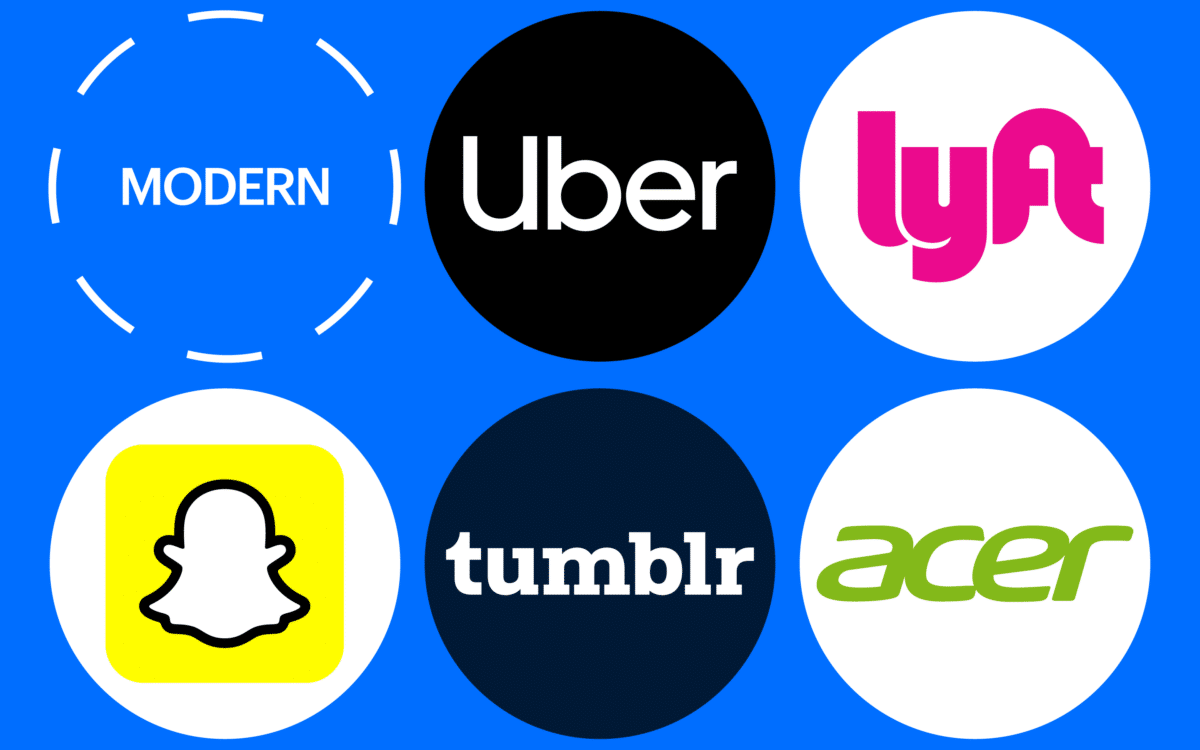
Modern brand names
On the opposite side of the spectrum to historical brand names, modern brand names focus on making a company appear as “cutting edge” as possible.
The purpose behind a modern company name is to make your business look new and up-to-date, even if you’ve already been around for several decades in your chosen industry.
Modern brand names can be difficult to master because our perception of what’s “new” and up-to-date will naturally change over time. However, it’s worth looking at the trends in your industry for an insight into what might be perceived as modern for your target audience.
Words like “Uber” are usually more likely to be considered as modern because they’re short, minimalist, and immediately engaging. Miss-spelled words, like “Lyft” are also highly modern in the eyes of some consumers.
Examples of modern brand names:
- Uber
- Lyft
- Snapchat
- Tumblr
- Acer
Different types of company names
As you can see, there are many different types of brand names available for companies to explore today. The right business name for you will depend on a number of factors, including what kind of audience you’re trying to reach, and what sort of message you want to send with your name.
Modern brand names can be excellent for making you seem like you’re on the cutting edge of your industry, but they might not have the instant appeal of a descriptive name if you want to present yourself as authentic and transparent.
Abstract names are excellent for getting your customers thinking, but they may not create the emotional response you can elicit with an evocative name.
Understanding the various different types of company name and how they work is often the first step in making sure you’re branding your business correctly. Although, even with this understanding, you might find it difficult to come up with the perfect name alone.
This is why it’s so important to seek a little extra help with choosing the brand name best-suited to your specific needs.
Fabrik: A naming agency for our times.
Now read these:
—An in-depth guide to descriptive brand names
—The pros and cons of abstract brand names
—When to use an evocative brand name
—Your guide to invented company names
—Is a lexical brand name right for your business?
—An insight into acronymic business names
—Putting geographic brand names on the map
—Should you name a business after yourself?
—Definitive guide to compound brand names
—Exploring the trend for modern brands names
—Is a playful business name right for you?
—Adding up alphanumeric company names
—Why are metaphorical brand names popular?
—Weighing up technical company names
—Getting to grips with historical brand names
Clarity starts with a conversation.
Thanks—we’ll get back to you shortly.
Whether you're navigating a rebrand, merger, or simply need a clearer identity—we’re here to help. No hard sell, just honest advice from people who know the sector.
Let’s start with a simple question…
Prefer to email? Drop us a line.
Fabrik’s been helping organisations rethink and reshape their brands for over 25 years. We’ve guided companies through mergers, rebrands and new launches. Whatever stage you’re at, we’ll meet you there.







